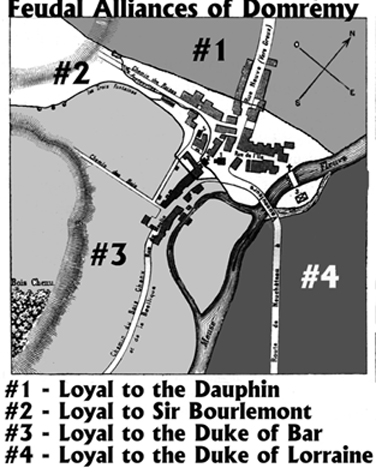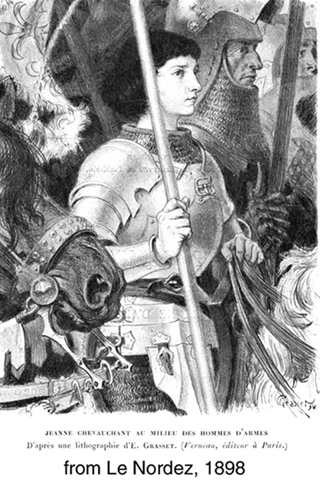
Introduction
For some seventy-five years before Jeanne's birth in 1412, blow upon blow rained down on the hapless Kingdom of France. The Black Plague swept its relentless way across Europe, devastating the population of Paris and the country's poor villages. Rich or poor, saint or sinner, lord or serf, each life was snuffed out quickly. Vast areas of France were left devoid of humanity and returned to a wild state, with wolves roaming freely where cattle and sheep had once grazed.
With their faith in God's goodness shaken by grim reality, nobles who once considered themselves invincible now faced a life that was as fragile as that of the lowest serf. This caused the vast majority of nobility to dabble in the occult, seeking the thrill of evil and dangerous diversions - things forbidden by the Church. They lost all sense of restraint, encouraging one another to seek greater amusements by whatever machinations came to mind, from ordinary gluttony to sexual excess and perversion. Sumptuous feasting and celebrating occupied each lord, who tried to out-do the next. The nobility exalted in their wealth, status and utter decadence. They immersed themselves whole-heartedly in the philosophy of hedonism: eat, drink and be merry, for tomorrow we die! At the same time they pressed a heavy heel upon the ordinary people, compounding the sense of resignation that embittered the inhabitants.
Out of this darkness and uncertainty of war-torn medieval France rose an illiterate girl of seventeen who brought God's light to a desolate land. Into a century clouded with despair and defeat, God sent a brilliant ray of hope for the French people and a beacon for them to follow. That hope was in an ignorant peasant girl from the backcountry of Lorraine. She would become known as one of the most extraordinary people who ever lived. History calls her Jeanne d’ Arc or in English, Joan of Arc, but in her time she was known simply as,

Jehanne, la Pucelle
or Jeanne, the Maid.This is her story.

In 1435 King Charles VII of France and Philip, Duke of Burgundy signed the Treaty of Arras. After this important event, Jean, Count of Mortain and Porcien-en-Rhetélois, whose nickname was ‘The Bastard," began compiling signed depositions from men and women who knew Jeanne during her life. He did this, as he stated, "To preserve and safeguard the memory of my comrade in arms, Jeanne, The Maid, to whom the kingdom owes its very existence."
While working on his chronicle, he became aware of the plot conceived by Lord George de la Tremoille and the Archbishop of Reims for Jeanne's capture and how they manipulated those events clandestinely.
Upon completion, Jean recognized the King's complicity in this tragedy and so, to save King Charles’ honor, he ordered his work concealed within the walls of his private chapel.
During a recent renovation of the castle, this five hundred and seventy-year-old manuscript was found intact! I have painstakingly translated this treasure into English so that you too can delight in Joan’s magnificent and poignant life as told by those who knew her.
I, Jean, Bastard of Orleans and the Count of Mortain and Porcien-en-Rhetélois, do here by make it known and broadcast, throughout the Kingdom of France and the surrounding principalities, this request. To all - whether friend or former foe – who have memory of Jeanne, the Maid, I beseech you to respond to this clarion call that we may preserve and safeguard the memory of The Maid to whom the kingdom owes its very existence."
